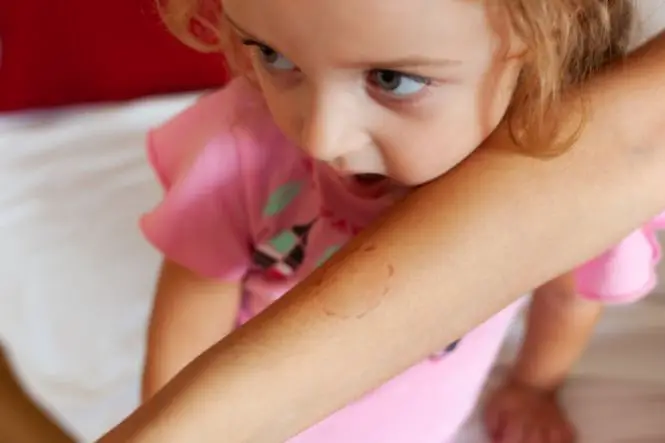There may be many causes for a change in a child’s behaviour but often it is down to one of two main reasons: because of changing emotions of which a child may not be conscious or able to verbalise or because it is a learned behaviour that the child knows will result in a particular outcome.
The return of “nervous behaviours” such as thumb sucking, nail biting, hair chewing or bed wetting can often signal that a child is uncomfortable, frustrated or afraid of something. The child may not be able to explain these feelings, but the behaviour is either a reaction to them or their way of coping with them. There are also a variety of “attention seeking” behaviours to which a child may resort when (s)he feels bored or left out. Whining and acting out of control may both be examples of such behaviours.
However, it can not be forgotten that a child’s behaviour with a particular person, during a particular activity or in a particular location is often a learned behaviour. A child will learn very quickly who will tolerate what behaviour and which actions will help him or her get what he or she wants in a particular situation. In this case it may be that the child has learned that the whining and thumb sucking gets him or her whatever he or she wants from the mother, whether it is physical items or more of the mother’s attention.
If you are concerned about the child’s changes in behaviour then you may want to bring it to the attention of the child’s parents. Coming together to discuss preferred methods of discipline for inappropriate behaviour, and ways to support the child in overcoming nervous behaviours, will help everyone come together to work for the good of the child. This should not be a conversation that seeks to blame individuals for their methods of interacting with the child, but rather to get everyone on the same page about how to move forward with the child’s best interests at heart. It may not be an easy conversation between a child care provider and parents, but it is important and very necessary. Good luck!



